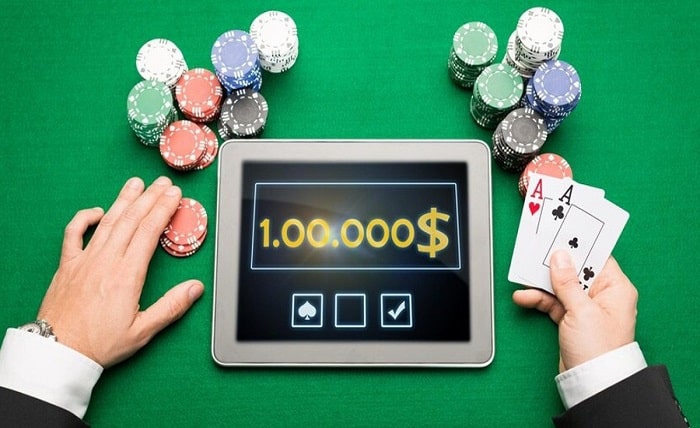Does Playing Games Near The Entrance Improve Your Chances Of Winning?

Introduction
Many people question if the location of the game they choose affects their success while visiting entertainment places with digital gaming machines. Among these hypotheses, the most often accepted one is the one regarding the possibility of winning by playing games close to the entrance of a venue. Stories, personal experiences, and even tactics handed on among players have helped to pass along this concept, which begs the unresolved issue.
The idea of selecting a game close to the door makes sense. After all, they are usually busy areas where gamers visit often. Some say venues can set more “generous” games close to the door to draw in guests and highlight the thrill of winning. But is this hypothesis merely a myth or does any actual data back it? This post will investigate whether your chances of winning are statistically changed by playing games close to the entrance.
Location Theory: Why Do Entrance Games Look So Good?
The theory that venues employ these machines to draw in and captivate passersby drives one to believe that games close to the entrance are more likely to provide greater payouts or frequent wins. Since the entrance is one of the first things players see, venues may set more interesting or maybe high-reward games in these areas to create buzz and inspire others to participate.
Visibility is another factor that players could find more satisfying about entry games. Someone wins close to the door and there is buzz. Players walking by or into the arena hear the sounds of a major victory and see the flashing lights. This exhibit can inspire people to believe that games close to the entrance are “lucky” since it shows them that they, too, have a chance to win if they operate these machines.
Perception: The Psychology
Our perception of luck, chance, and results in games of chance depends much on human psychology. Selective memory might help one to understand why entry games seem to be more fortunate than others. Big wins occurring close to the door are more likely to be remembered by people since they are more obvious and striking. Conversely, they can miss or forget the losses that arise just as frequently in the same areas.
This selective recall plus the thrill of witnessing someone win close to the door can give the impression that these games are somehow better or more satisfying. Still, the truth might lay more in perspective than in actual statistical superiority. Focusing on the successes and ignoring the losses helps us to build a story in our thoughts that might not be quite accurate.
Does A Game Placement Strategy Exist?
Another reason the entrance idea holds true is some players think the location of games has deliberate placement in mind. They might believe that venue managers deliberately schedule more exciting events in high-traffic areas such as the entrance that would attract players.
This view, though, can be deceiving. Many modern venues include computerized games developed with certain algorithms meant to guarantee fairness and randomness. These autonomous machines run without regard to their physical position within the venue; their results are not affected. The game’s algorithm, not its location on the floor, determines whether a machine is near the entrance, in the back, or in a quieter section that is, the chances of winning.
Visibility And Player Action
Visibility plays another role supporting the entrance theory. Players can see games next to the door more clearly, hence they might play them more often. Someone is more likely to finally win the more participants that play a given game. Though in fact the entrance games are only being played more regularly, this greater playing can give the impression that they are “hot,” or more giving.
Players may also flock toward these obvious games only because they are easily available. The games close to the door are the most handy to start playing when you initially get to a place. Though in actuality it’s only a matter of more individuals playing these games, this higher traffic can create the impression that they are more rewarding.
The Allegory Of “Loose” Machines
The notion that some machines are “loose,” or meaning they pay out more often than others, is among the most tenacious rumors in gaming. This idea holds that venues set free machines close to the door to draw players hoping for simple gains. Although this concept might have some historical basis, modern slot gacor rules and technology have essentially eradicated the idea of free will machines.
The closely controlled games of today have to follow particular principles and norms to guarantee fairness. Every machine is set to run within a predefined range of payout percentages, so regardless of their location the chances of winning remain constant among all machines. In the gaming scene of today, the concept of unsecured machines close to the door is more of a nostalgic myth than a reality.
Conclusion
Though it’s a fascinating hypothesis, the idea that playing games close to the entrance increases your odds of winning is not supported by the way contemporary gaming machines are made. Regardless of where the game is located in a venue, the unpredictability of the games, under control by sophisticated algorithms guarantees that every play is independent of the next. Although the tremendous traffic and visibility of entrance games could make them seem more “lucky,” this view is more likely resulting from human psychology and selective memory than from any statistical advantage.
Your odds of winning either near the door or elsewhere are the same overall. Remembering that these games are meant for fun would help one to appreciate them as the result is always based on chance. Knowing that luck is the real deciding element, not the location of the machine they chose, players can have a more fun experience by stressing the fun and not the myths.




